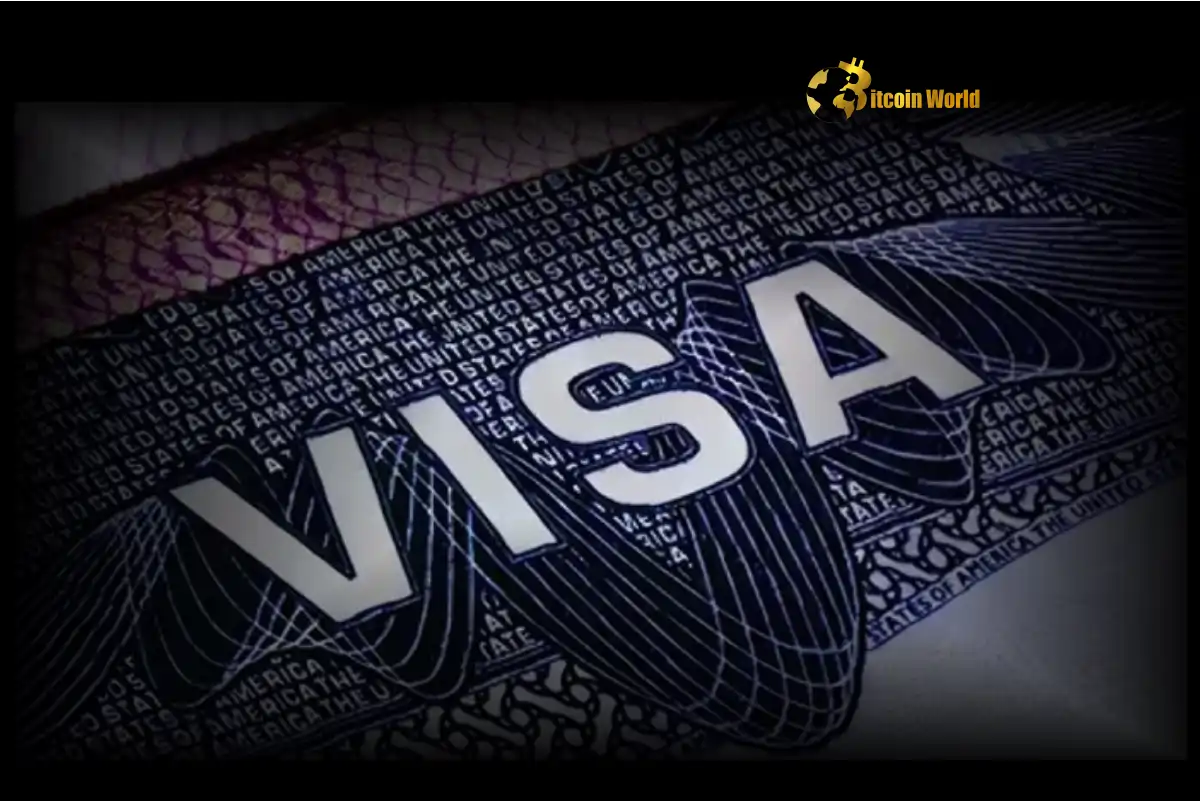Urgent: Student Visa Revocation Crisis Grips AI Doctoral Candidates in US
0
0

In a chilling development for the global tech community, especially those invested in the future of AI and blockchain, a disturbing trend is emerging from the United States. An AI doctoral candidate in California has become the latest victim of what appears to be an aggressive crackdown on student visas, throwing their academic aspirations and immigration status into turmoil. This incident raises critical questions about the future of international talent in the US and the potential ripple effects on innovation across sectors, including cryptocurrency and decentralized technologies.
Why is the US Suddenly Revoking Student Visas?
Imagine pursuing your dreams, contributing to cutting-edge research, and suddenly finding your foundation pulled out from under you. That’s the reality for an anonymous AI doctoral candidate in California. Speaking to Bitcoin World, this student revealed their SEVIS record – the digital cornerstone of their student visa – was abruptly terminated. The reason? A criminal records check flagged them, despite having no actual criminal history. This student, who has dedicated nearly a decade to studying in the US, believes a past minor police interaction, even predating their graduate studies, might be the culprit. This alarming situation is not isolated. Reports indicate over a thousand international students US have faced similar visa challenges recently, driven by a stricter stance from the State Department and Immigration and Customs Enforcement.
How Does This Impact the AI Talent Pipeline?
The ramifications of these visa revocations extend far beyond individual students. Yisong Yue, a machine learning professor at Caltech, warns of the severe damage to the talent pipeline. In an interview with Bitcoin World, Yue emphasized that this hardline immigration policy is making the US a less attractive destination for top researchers. Consider these points:
- Research Setbacks: Highly specialized research projects in AI can be derailed for months or even years when doctoral students are suddenly removed.
- Brain Drain: Talented researchers are reconsidering the US, potentially leading to a loss of innovation and expertise.
- Widespread Anxiety: The uncertainty is creating fear and instability among the entire community of international students US.
This isn’t just about academia; it’s about the future of technological advancement. The US has long benefited from global talent, particularly in fields like AI, which are crucial for progress in areas like blockchain and cryptocurrency technologies.
Examples of Impacted Students: Who is Affected?
The crackdown isn’t discriminating. Students from diverse institutions, ranging from Ivy League universities to public colleges and small liberal arts schools, have been affected. While some accusations involve serious allegations, like supporting militant groups, others are bafflingly minor. Here are a few examples illustrating the breadth of the issue:
| Student Case | Institution | Issue | Outcome |
|---|---|---|---|
| Anonymous AI Doctoral Candidate | California University | Unspecified “criminal record” (likely minor past police interaction) | Visa revoked, status at risk |
| Suguru Onda (Computer Science PhD) | Brigham Young University | Unspecified reason for revocation | Visa reinstated after legal action, no explanation given |
| ~100 International Students | Various (Georgia) | Unspecified reasons for revocation | Temporary restraining order issued, visas reinstated (for now) |
These cases suggest a systemic issue, possibly linked to automated AI screening without adequate human oversight, as suggested by attorney Adam Crayk. The lack of transparency and recourse leaves international students US in a precarious position.
Why Should the Crypto World Care About Student Visa Issues?
You might be wondering, what does this have to do with cryptocurrency? The answer is: everything. The AI revolution is deeply intertwined with the future of blockchain and crypto. Many breakthroughs in AI are driven by international talent studying in the US. Consider these key contributions:
- Transformer Architecture: Ashish Vaswani, co-creator of the transformer (powering models like ChatGPT), came to the US as an international student US.
- OpenAI Co-founder: Wojciech Zaremba, a co-founder of OpenAI, earned his AI doctorate in the US on a student visa.
Furthermore, international students US are a significant economic force, contributing $43.8 billion to the US economy and supporting over 378,000 jobs in the 2023-2024 academic year alone, according to NAFSA. A weakened talent pipeline in AI directly impacts the innovation ecosystem that fuels advancements in crypto and blockchain technologies.
What’s the Future for International AI Talent in the US?
The current climate is causing serious concern among leading AI researchers. Professor Yue notes that senior AI researchers, including professors at top universities and researchers at companies like OpenAI and Google, are worried about their future in the US. The aggressive immigration policy risks turning the US into a less desirable hub for global talent, potentially hindering progress in critical technological fields. The long-term consequences for US leadership in AI and related fields like crypto could be significant.
To learn more about the latest AI market trends, explore our article on key developments shaping AI features.
0
0
 Manage all your crypto, NFT and DeFi from one place
Manage all your crypto, NFT and DeFi from one placeSecurely connect the portfolio you’re using to start.




